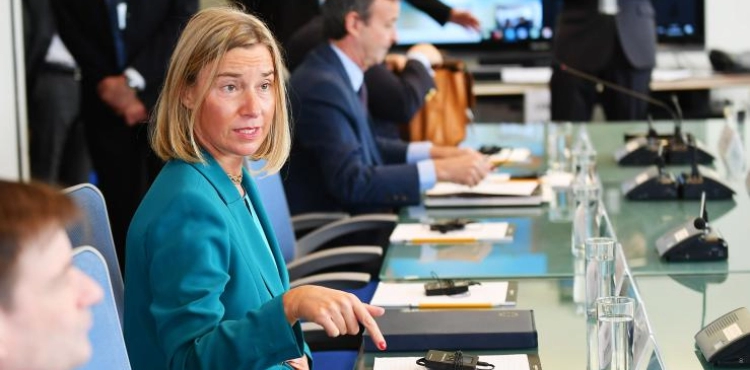United Nations _ Agencies
The Europeans announced the establishment of a barter system to continue their trade with Iran and the impunity of U.S. sanctions, in a resolution that marks a blow to Washington on the eve of President Donald Trump´s speech at the UN General Assembly aimed at mobilizing against Iran.
The initiative aims to save Iran´s nuclear deal in 2015, despite the resounding withdrawal of the United States from the text in May last May.
In a declaration read in conjunction with Iranian Foreign Minister Mohammad Javad Zarif, Union Foreign Minister Viderka Mogherini "Practically, the EU Member States would be a legal entity to facilitate legitimate financial transactions with Iran."
"This system will allow European companies to continue trading with Iran in accordance with European law, and other partners in the world can join it," she said.
Representatives of the six signatory countries of the nuclear deal--France, Britain, China, Russia, Germany and Iran--attended the meeting in New York on the sidelines of the UN General Assembly.
According to European sources, this entity called the "targeted mechanism " (Speshel purbs-S-P) will act as a stock exchange or a sophisticated swap system from the sale of Iranian oil, the country´s first source of imports.
-Oil "only offset"-
If Iran sells oil to Spain, for example, and Germany sells equipment to Tehran, the revenue from the oil shipment is used to pay the amount of the German company.
"There will be a clearing room to verify that the value of the exported goods and those imported by Iran compensate for each other," a French diplomat said.
This mechanism "barricaded " buyers and sellers by avoiding dollar deals could open the door to U.S. sanctions.
"Oil is the only reward Iran can provide (...) and the mechanism allows the use of oil revenues to import goods," the source added.
The nuclear deal, which was signed in 2015, aims at preventing Iran from acquiring an atomic weapon and at the same time removing it from its economic isolation by lifting the sanctions that stifle it.
But when he left the deal, Trump repeated harsh sanctions that also targeted foreign companies and countries that continue to trade with Tehran. Under the threat of sanctions, large groups (French total and German Daimler...) have been suspended with extensive activities in the United States, every activity in Iran for fear of us reprisals.
A fourth batch of sanctions will enter into force on November 4, and will directly affect Iran´s oil exports and banking operations with the de facto country, which is to be cut off from the international financial community.
-Assuring companies-
The new payment channels are supposed to reassure "economic actors," Federica Mogherini told reporters.
The aim was to protect the economic gains that Iran was awaiting in return for its survival in the agreement and to abandon a military nuclear program.
Iranian President Hassan Rowhani told the television network "NBC " Monday that his country has chosen to remain in the nuclear deal.
Iran has the fourth world-proven oil reserves, while a number of countries, especially in Asia, need Iran´s crude, especially as its refineries are specifically designed to handle this kind of oil, not others.
Europeans are determined to salvage the nuclear deal to avoid resuming the Iranian program, which could relaunch the race to atomic weapons in the region.
They are concerned about any weakening of President Rouhani, who is strongly defending the nuclear deal, but has not yet reaped the economic gains he has relied on to confront the most stringent currents in the regime.
"The protection of the agreement is in the interest of the international community," Mugherini said.












